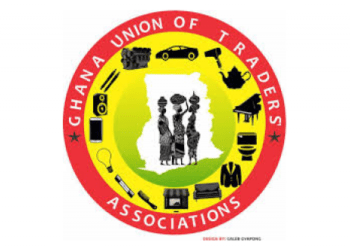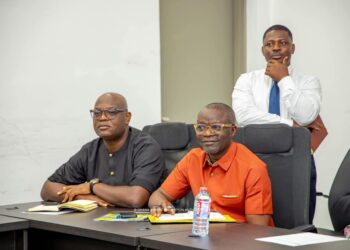Mr Daniel McKorley, the Executive Chairman of the McDan Group of Companies, has bemoaned the slow pace of economic growth in the sub-region. He, thus, attributed Ghana’s slow economic growth to the lack of indigenous businesses controlling key sectors of the economy.
According to the Executive Chairman of the McDan Group of Companies, Western and Asian countries including the USA, Germany, and Japan developed because key industries such as iron, steel, rail, and banking were controlled by indigenous industrialists.
To this end, Mr Daniel McKorley challenged businesses in the country to re-strategise to be able to control certain sectors of the economy and set the path for Small and Medium-scale Enterprises (SMEs) to deliver services and products in order to become the engine of growth.
“In Ghana, banking is controlled by Nigerians and South Africans, retail is controlled by Lebanese and Indians. The Telecom sector is controlled by British and South Africans. Oil and gas, mining, trading, you name it, they are controlled by foreigners.”
The Ghanaian businessmen, however, Mr. McKorley noted, do not control many sectors but rather control small businesses. He noted that despite the importance of small businesses; they do not build nations. He added saying that “When big businesses lead build small businesses rally around and push plug-in to grow and become the true engine of growth”.
“I believe when competent Ghanaian Industries are given the right opportunities, especially in the growth industries they will execute, and the SMEs will thrive as well,” Mr. McKorley stated.
Mr. McKorley averred that the Africa Continental Free Trade Area (AFCFTA) is an opportunity for private sector in multiple countries in Africa to thrive and grow to control key sectors of their economy as it served as a boost in international trade.
The Executive Chairman urged the private sector to educate themselves comprehensively about AFCFTA from policy context to concept execution to minimize and eliminate concerns and strengthen the bases.
The Called for Partnerships
Mr. McKorley further called for partnerships to enable the exploration of all segments within AfCFTA to ensure the successful implementation of AfCFTA and realization of the benefits.
AfCFTA, as the main driver of Agenda 2063, Mr. McKorley called for more effort and a keen interest in the participation of the youth in the AfCFTA as well as the designation of specific participatory roles and a platform to enable them to build their human capital.
The AfCFTA, which started trade in January 2021, is expected to have massive positive effects on Africa and its population in personal and business spheres. From reducing poverty to promoting trade integrity and cross-border cooperation, the AfCFTA may even achieve more than it originally set out to do.
Meanwhile, it is estimated that the African Continental Free Trade Area (AfCFTA) agreement will create the largest free trade area in the world measured by the number of countries participating. The pact connects 1.3 billion people across 55 countries with a combined gross domestic product (GDP) valued at US$3.4 trillion. It has the potential to lift 30 million people out of extreme poverty, but achieving its full potential will depend on putting in place significant policy reforms and trade facilitation measures.
By reducing trade barriers and simplifying the trade process, the AfCFTA will enable African businesses to progressively gain access to the continental market. As such, it is important that Ghanaians take advantage of this broad market to man critical sectors.
However, all the efforts would be in vain if there is no willingness, from the intended beneficiaries, to participate. SMEs, and those representing them, are called to action to drive the inclusion agenda further.





















